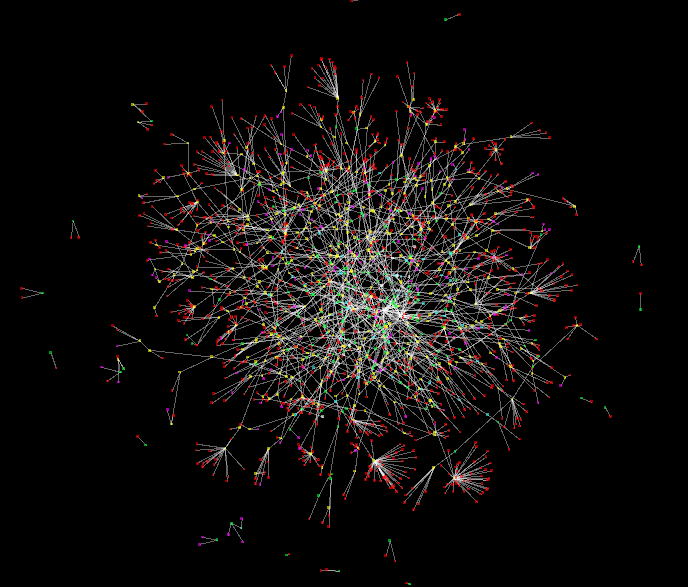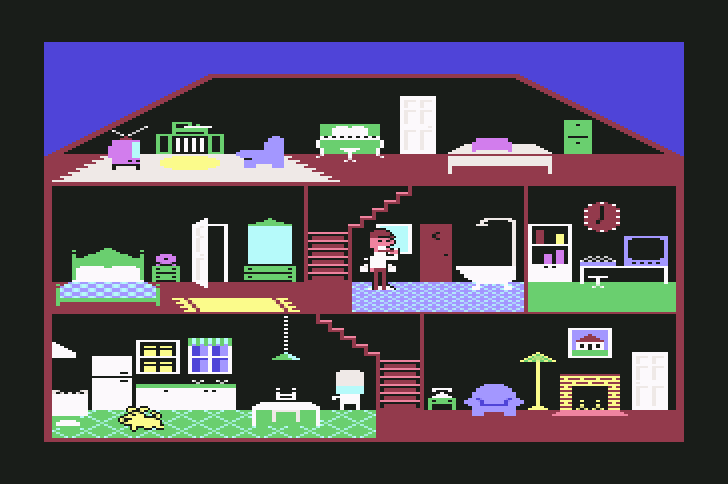A definition of reality
We should start from the premise that we operate from the point of view of self-preservation. This would be preservation of the immediate self, but also preservation of offspring and peers as a reflection, since they also represent a vehicle of the self into the future. Then, our existence is contingent on our ability to predict the future. The better the prediction, the better are the chances to stay alive and to project our own existence. "Will I be alive tomorrow if I stay into this cave ? Will I cripple myself if I walk barefoot on gravel ?"
Any prediction requires two elements:
1) Prior knowledge, the more the better.
2) Analytical tools to reliably derive an outcome from that prior knowledge.
To be efficient at this, we need to be able to process information in the most deterministic way possible. This means that the most valuable information is information that we can put through our analytical machinery (the brain, or any other sufficiently powerful calculator), and that can lead to a useful forecast of a given event.
The keyword here is "determinism", something that requires a level of rigidity that may be challenging for a human brain. This is actually where digital data storage, math and digital computers can help greatly.
The scientific method is also built on the concept of determinism. If you can consistently use prior knowledge to determine a future event, then your actions are useful and deserve more exposure. If instead a theory cannot predict the outcome, then the theory has no practical value. Of course the inability to prove something doesn't mean that a theory is necessarily invalid, but for all intents and purposes, one simply cannot rely on a formula that cannot forecast an outcome.
One could think of a deterministic structure as a web of points of determinism. A graph where each node is connected to other nodes. The more the connections, the more reliable is a certain fact established by that point of determinism. Nodes at the fringe of the web, with virtually no connections to others, must still exist, otherwise there would be no progress, but they are less reliable, because they have less support than the better interconnected points.
The network structure is pervasive in nature, and it's how our brain is built. This structure is also what reality is to us: things are more or less real, depending on how well we understand them, meaning how well they relate to other pieces of data, with the goal of making useful predictions. The moment in which such structure comes less, it's also when reality dissipates. Reality is indeed a structure.
Going beyond definitions. Once we establish all this, it should be clear that to have any kind of success at any level, one is better served by leveraging determinism as much as possible (unless "success" is defined by self-destruction, but that's uninteresting and easily obtained).
In practice, establishing a robust level of determinism can be very difficult. The difficulty of establishing a clear logic connection between concepts can vary wildly. This depends on the amount of data at play and the process of analysis required to interpret those data. Most complex subjects are filtered through the lens of experts, which use their skills and experience to reduce complex subjects to a simplified form that can be easily digested by the non-expert. Experts however can often disagree on fundamental issues, hopefully in good faith, but sometimes in bad faith, too. On top of that, communication of the synthesized concepts usually goes through additional levels of simplification and bias. For larger issues, experts defer their communication to technical leaders, political leaders, public-relations, editors and finally journalists/writers.
Putting potential malice and communication issues aside, there's an inherent problem of complexity. Some fields necessarily rely on complicated statistical models to attempt to establish cause and effect while operating at a level of knowledge that is not very detailed.
Medical trials are a good example of an attempt to establish determinism from a very complex system (the human body) that in some cases one has to treat as a black box. A "black box" being a system that generates an output for some inputs, although the user doesn't completely understand the complex mechanics that make the box work. With medicine there may be a general understanding of the benefits of certain elements on the human body, but there is also hidden complexity of the system that forces researches to take a trial-and-error approach, usually starting from other, more expendable, living creatures.
Another problem with establishing determinism is that too much reality hurts. Suspension of disbelief is a necessary tool for survival. It's necessary against the nihilistic picture that naturally arises from thinking about existence. Imagination is essential both to cope with reality of existence, and to expand the vision of reality. At the same time, imagination can easily be abused to the point of becoming counterproductive.
In my opinion, while it's essential to keep a grasp on the better established aspects of reality, it's also important to let the mind run free, and to occasionally listen to "the crazies" (see "Adopt a conspiracy theorist"). This is a good mental exercise and also a reminder that reality is a dynamic concept. To push this to an extreme, in some ways, the person that cuts his arm looking for an alien microchip, may be closer to the universe than the person that wakes up at 8 in the morning to go to the office for 40 years. The schizophrenic has less ties to the common concept of reality, but our common concept of reality is also infinitesimally limited in the context of the greater universe.
A less extreme example of lateral thinking is that of religions. The modern educated man deride religions and the concept of a God, as some silly coping mechanism, however the fundamental questions that religions attempt to address never went away. One may decide to ignore those questions for a while, but they keep coming back. This is why nowadays theories about living in a simulation are so popular, it's just a modernized version of religions. It's a framing that has a better grounding with our map of reality, one that includes more advanced reasoning tools, but it's a framing that also validates the fundamental pursuit of ancient religions. In fact, the "simulation theory" could easily become the basis of new religions, where God is no longer an old man living in the clouds, but a game developer that clicks on you and checks your status from time to time.
In conclusion, it's safe, efficient and productive to rely on the better established areas of the "reality network", but it's also important to keep in mind that there is a virtually infinite potential to explore and expand that structure, and that our point of view is extremely limited. Finding the right balance is the hard part, as with everything. Stay at the center and you're golden, but you're going to live a derivative life like any working bee, move too far to the edges, and life can become a mix of fantasy and paranoias. May the most balanced player win !
Below, a tribute to Terry A. Davis, a fellow programmer that was definitely living on the outer side of the network.


